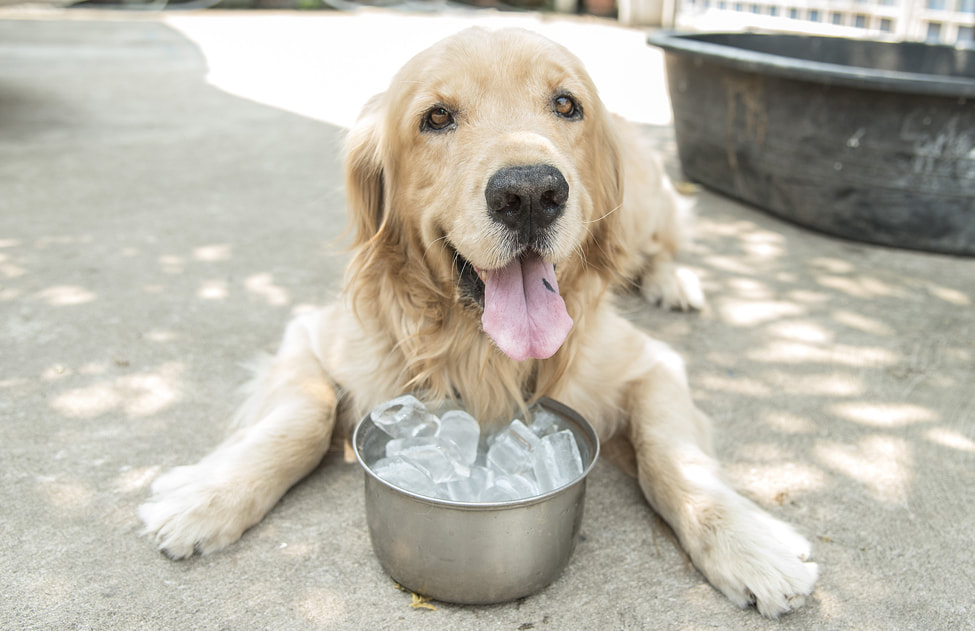|
British dog owners have been warned of the potential dangers warmer weather could bring to four-legged friends this summer, including heatstroke, dehydration, and even bee stings. Pet experts at BellaandDuke.com are urging dog owners to be vigilant about keeping their pets safe and protected from the sun’s heat and UV rays, as well as insects and wildlife. Long walks and picnics in the sun are welcomed by all family members throughout summer, but the season can also be a nightmare for pet owners who have to keep their clumsy dogs away from potential danger. Back gardens alone can present a number of dangerous hazards, so Brits have been urged to be vigilant in keeping their canine companions out of harm’s way. Dangers to be aware of include blistering temperatures in vehicles, bee stings, and even burning paws on the pavement. A spokesperson for BellaandDuke.com explained: “It’s vital to ensure your pets are safe and protected from the sun and various other summer dangers outdoors. Leave cool mats around for your dog to use, and consider investing in a dedicated doggy paddling pool to help them cool down outside. Also watch out for signs of overheating. Excessive panting and drooling, unsteadiness, and vomiting during exercise or on walks all indicate that your pup is suffering heatstroke, which can kill" “If you’re worried your dog is overheating, phone your vet for advice and help immediately.” Below is a list of potential dangers to your pooch in the warm summer weather: 1. Cars
When driving with your pooch, make sure to keep the air conditioning on. Cars can be incredibly dangerous places for dogs during summer, and so they should never be left in a parked car, under any circumstances. Even if water is left and the windows are slightly open, the temperature in the motor can rise rapidly and fast become fatal for dogs. On days when the temperature is spiralling upwards, it may be better to leave your dog at home. 2. Heatstroke Animals can get heatstroke too, and dogs are especially sensitive when left outdoors for long periods of time. Ensure that your dog always has a bowl of fresh and clean water available – of course, this applies all year round. Consider carrying portable water bowls when on walks or long car rides, or another option would be to pack frozen treats or to purchase a kiddy pool to allow your dog to cool down. 3. Extra fur Providing warmth in winter, many owners opt to shave off their pet’s fur in summer as they are under the impression this will keep them cool. This is right, but only to an extent. It’s important to understand that the coat does offer protection against the harsh summer sun and so should never be cut too short, as this could increase the risk of sunburn. 4. Bees Dogs are natural investigators and may decide to take it upon themselves to go after the enticing buzzing sounds of bees, leading to them getting stung. For the most part, this is relatively harmless, and your pooch will simply spend some time licking its wounds. But keep note of the dog’s response after the sting. If the wound become particularly irritated and your dog is scratching at it, or if there is significant swelling, it’s best to arrange to see a vet as soon as possible. 5. Water safety Surprisingly, not all dogs know how to swim, and even if they can swim, they may get tired and not rest properly. To prevent any catastrophic accidents, you can use doggy life jackets which help keep their heads above water. If swimming in a home pool, spend some time teaching your dog how to get in and out safely, and never leave them alone around large bodies of water. 6. Snakes Like a lot of British wildlife, slithering serpents become more commonplace as the weather gets warmer. Many are harmless, yet all should be avoided as a dog’s bark may be no match for a snake’s bite. Tall grass and piles of rubbish offer perfect hiding places, so keep the garden tidy to protect your pooches. If your dog has a habit of chasing after wild animals, put them on a lead when in areas where they may be lurking. If bitten, take them to the vet immediately. 7. Pavement Asphalt can reach soaring temperatures in the height of summer. This would be incredibly uncomfortable to walk on bare foot, so consider how your four-legged friend is doing. Investigate which dog-walking paths lie in the shade and schedule walks for cooler times in the day, as most dogs won’t take to boots or other protective footwear. Source: bellaandduke.com |
Categories
All
|
